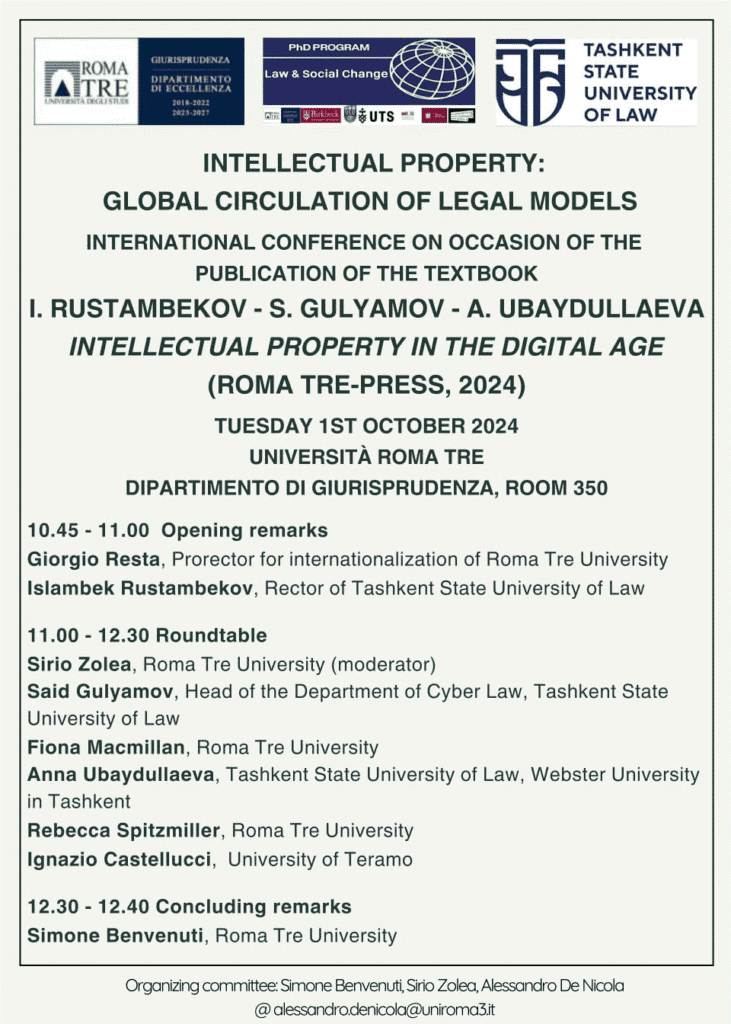Author: Rebecca Spitzmiller – 05/10/2024
AN EU-US PERSPECTIVE ON THE INTERRELATIONS AND TENSIONS BETWEEN COMPETITION LAW, IP LAW AND PRIVATE ENFORCEMENT
Rebecca Spitzmiller – Roma Tre University
Abstract – This short article provides an overview of the relationship between competition law, intellectual property (IP) law, and private enforcement, comparing the US and the EU. The key points discussed are the common goals of IP and competition law, the tensions between them, private enforcement mechanisms for violations of them, and the main differences between those mechanisms in the US and EU legal systems.
Keywords : Intellectual Properties, Private Enforcement, EU-US Perspectives
- Similar Aims
Both intellectual property and competition law aim to increase fairness in the marketplace by optimizing prices, quantity and quality of goods and services. These two bodies of law are somehow inextricably linked, especially in the digital age and regarding digital innovation.
A few key similarities include:
- Enforcement authorities Agencies apply the same general antitrust principles to conduct involving intellectual property that they apply to conduct involving any other form of tangible or intangible property. Even if IP has important distinguishing characteristics, such as ease of misappropriation, they do not require the application of fundamentally different principles in antitrust violations cases. It is generally recognized that competition and IP law are not only compatible tools to regulate economic policy but that they complement each other.
- Intellectual property law bestows on the owners of intellectual property certain rights to exclude others that may have anticompetitive effects against which the antitrust laws can and do protect. Intellectual property is thus neither particularly free from scrutiny under the antitrust laws, nor particularly suspect under them.
- Licensing of intellectual property is often international, and the principles of both US and EU antitrust analysis apply equally to domestic and international licensing arrangements. However, considerations particular to international operations, such as jurisdiction and comity, may affect enforcement decisions when the arrangement is in an international context.
But because these laws — IP and Competition — pursue their similar objectives through different means, and are aimed at different stakeholders, tensions often arise between them.
Continue reading, please download the Seminar Publications Series SPS_07_2024 ISSN 2704-8969
Related Links:
- Intellectual Property in the Digital Age – Islambek Rustambekov, Said Gulyamov, Anna Ubaydullaeva -Simone Benvenuti, Fiona Elizabeth Macmillan, Sirio Zolea
- Rethinking IP Law in the Era of Artificial Intelligence – Said Gulyamov, Anna Ubaydullaeva

